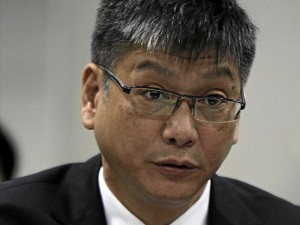MANILA, Philippines—Malacañang unveiled its long awaited policy on the mining industry on Monday, imposing a moratorium on the granting of new permits pending legislation to raise the government’s share from mining operations, but also trying to control the traditionally hard to regulate small-scale mining sector.
In a nod to anti-mining groups, the executive order signed by Executive Secretary Paquito N. Ochoa Jr. for the President, also sets out guidelines for areas that would be closed to mining applications, including “critical areas, island ecosystems and impact areas of mining as determined by current and existing mapping technologies” that the Department of Environment and Natural Resources may identify.
Other areas where mining would be banned are tourism development areas as identified in the National Tourism Development Plan, prime agricultural land and fishing sanctuaries identified by the Department of Agriculture, in additional to those already protected under the 1995 Mining Act and the National Integrated Protected Areas System.
The cornerstone mining policy of the Aquino administration comes after months of acrimonious debate between mining advocates and anti-mining activists and frenetic lobbying by both sides to gain the Palace’s favor.
Mining advocates, led by the Chamber of Mines of the Philippines, argue that the country’s large mineral reserves are a potent tool for pushing economic development, especially when mined responsibly. However, critics of the industry have often expressed skepticism over mining firms’ ability to adhere to “responsible mining” tenets and point to the environmental degradation around mining sites.
The details of the mining EO released Monday show the document is not likely to end the debate for and against mining.
For one, it is silent on exactly how much the government wants to receive as a share of revenues from mining firms, leaving it up to Congress to pass laws that would dictate the revenue sharing scheme.
Despite the ban on the issuance of new mining permits pending the revenue sharing laws, the EO says, however, that the DENR may continue to issue exploration permits to parties who will then have first crack at developing the mines once regulators approve the mining agreements.
The new EO sets a thorough review of existing mining operations and a “cleansing” of so-called “non-moving mining rights holders” to be implemented by a multi-stakeholder team, led by the DENR.
The EO also mandates the DENR to review all existing mining contracts and agreements “for possible renegotiation of the terms and conditions of the same, which shall in all cases be mutually acceptable to the government and the mining contractor.”
In a bid to further raise the state’s share of revenue from mining activities, the EO also mandates the Mines and Geosciences Bureau to, henceforth, award all future mining permits to proponents via competitive bidding.
Finally, Malacañang also mandates the creation of a Mining Industry Coordinating Council to be composed of the Cabinet clusters in charge of Climate Change Adaptation and Mitigation, and Economic Development.
The council will also have, as additional members, the secretary of justice, the chairperson of the National Commission on Indigenous Peoples, and the president of the Union of Local Authorities of the Philippines.
